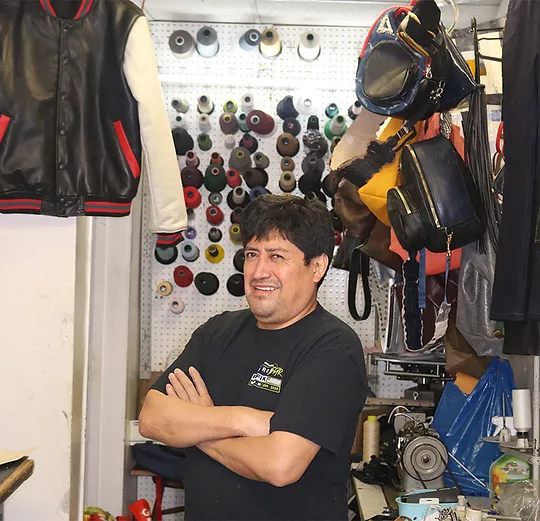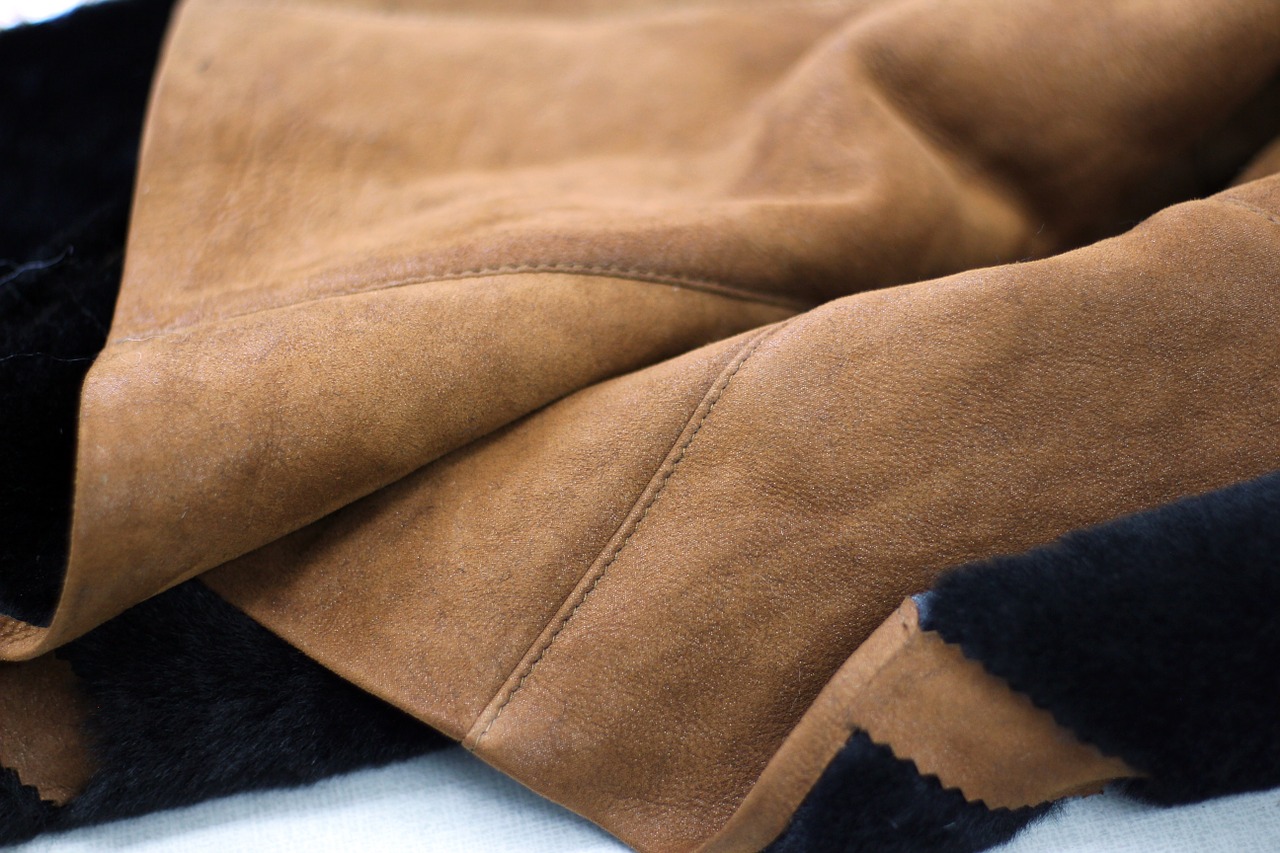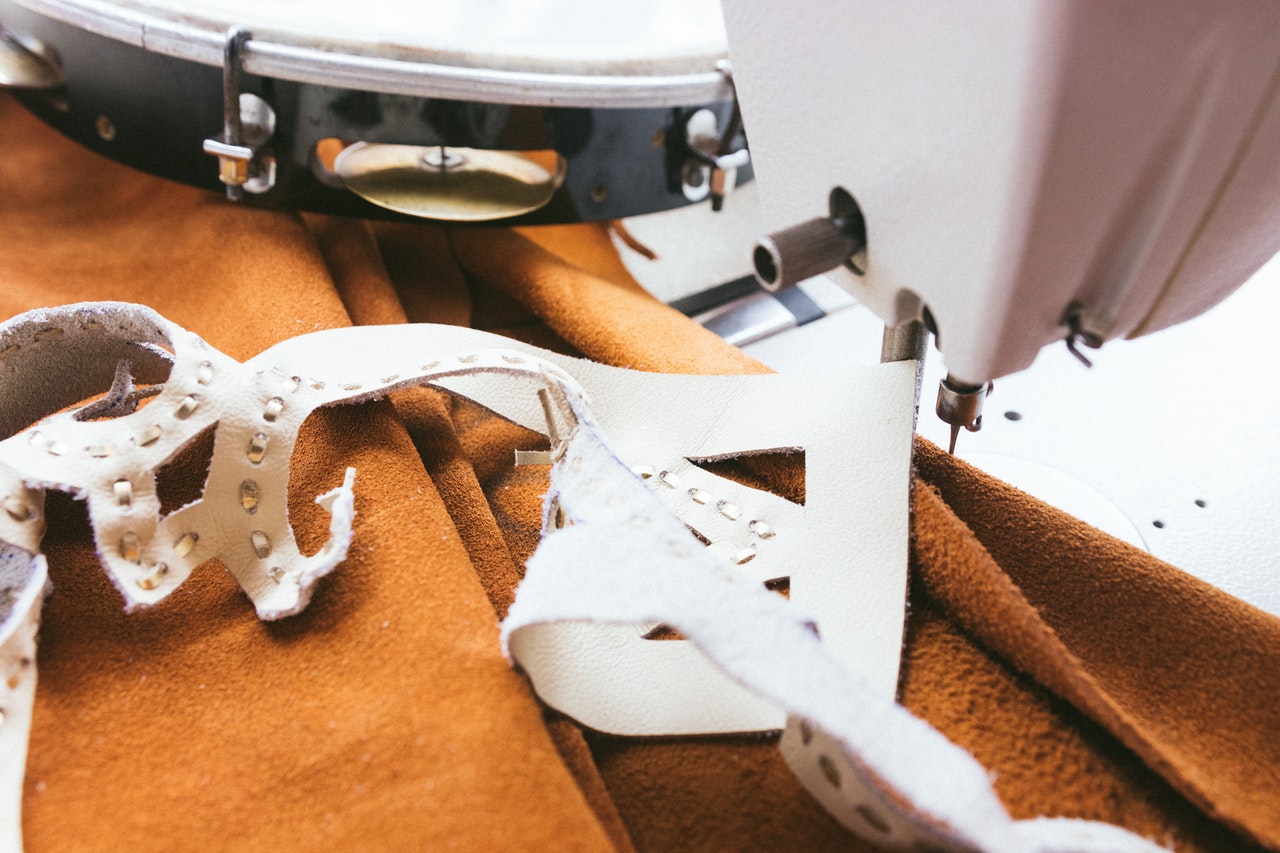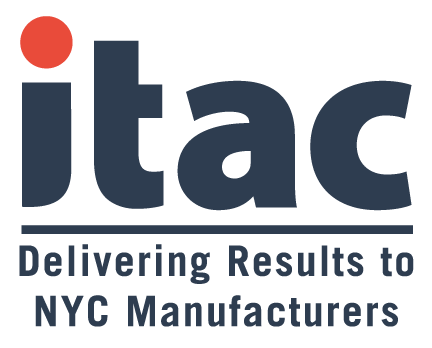“I really enjoy everything about this work.”
Angel Zhagui
Angel started sewing as a 7-year-old in Ecuador in the 1970s.
After school and on the weekends, he would help his older brother Alvaro with his pant-making business. When denim rose in popularity in his home country in the 1980s, he started making denim jeans, jackets, skirts, and bags. He took a course to learn additional sewing and pattern-making skills, but mostly learned through hands-on experience. By the time he was a teenager, Angel left school to become a manager in a mid-sized apparel manufacturing company.
When his brother passed away suddenly from heart disease in 1992, Angel moved to New York City to find work to support his family. He initially worked for leather manufacturers before launching his own business in 2000, naming the company Alan Handbags in memory of his brother: “Alan” combines the first letters of his brother’s name, ALvaro, with the first letters of his own name, ANgel. He moved to the Garment District a few years later, eventually ending up at 247 West 38th Street.


“It’s not easy work.”
Alan Handbags is known for making original leather goods, including bags and apparel. The company also offers leather repair services, including zipper replacements, and custom alterations. After thirty years in the garment district, many designers are familiar with Angel’s work; as such, most customers find him through word-of-mouth referrals. They return to Alan Handbags for the high-quality work and professional approach at affordable prices. Angel also works with emerging designers, teaching them about the construction of bags and helping them with the design.
“In the future, garment manufacturers will have to be like Elon Musk – using machines to do things faster and cheaper.”
Angel would like to expand his business and hire more people to support him. As technological improvements are transforming all aspects of garment manufacturing, the next generation of manufacturers will need to be focused on technology. Angel remembers when he first used a double-stitcher machine in Ecuador, which meant that pant seams no longer had to be sewn 4-5 times but could be sewn in a single step.
Angel is motivated by a love of the work. His parents wanted him to join their woodworking business, but he enjoyed making apparel. He also tried working in restaurants in New York City, but he has always returned to sewing. “It’s not always about the money. I love the work.”



